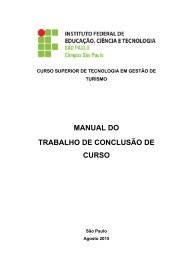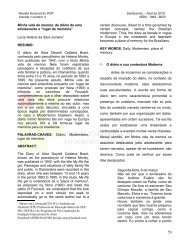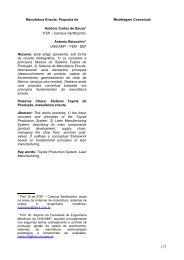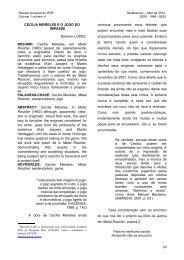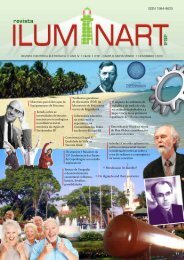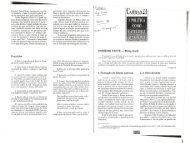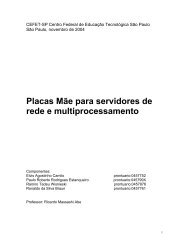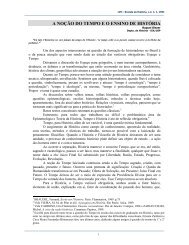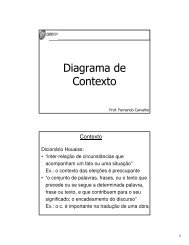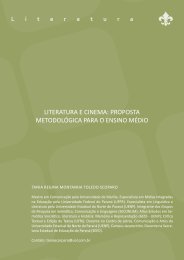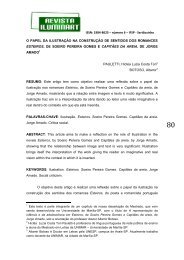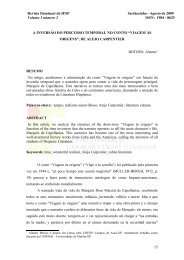Página 97
Página 97
Página 97
You also want an ePaper? Increase the reach of your titles
YUMPU automatically turns print PDFs into web optimized ePapers that Google loves.
ISSN: 1984 – 8625 – número 7 – IFSP - Sertãozinho - 2011<br />
We can see that all the subtournaments S i =< vi, vi+1, v > with<br />
vi, vi+1 in C, are transitive. Therefore (vi, vi+1, v) ∈ KT and hence the<br />
cycle C is nullhomotopic.<br />
In the case C is contained in an e-component of T , then C<br />
is coned, hence nullhomotopic, and we say the cycle C is shrinkable.<br />
This fact that all the coned cycles are nullhomotopic in the<br />
context of the regular homotopy for digraphs has called attention<br />
to the non-coned cycles, whose concept was essential to prove<br />
very significant new results about hamiltonian tournaments as we<br />
shall show in the several applications that are given in the next section.<br />
5. Some Applications<br />
In [6] Burzio and Demaria used regular homotopic methods for<br />
characterizing tournaments which are the composition of a non-trivial<br />
highly regular tournament.<br />
Definition 5.1 A tournament T2m+1 is highly regular if we can<br />
label its vertices v1, v2, . . . , v2m+1 in such a way that vi → vj, for all<br />
i = 1, 2, . . . , 2m + 1 and for all j = i + 1, i + 2, . . . , i + m( mod 2m + 1).<br />
In other words, T2m+1 is highly regular if there is a cyclic ordering<br />
v1, v2, . . . , v2m+1, v1 of its vertices such that vi → vj if and only if vj is<br />
one of the first m successors of vi in the cyclic ordering of the vertices<br />
of T2m+1.<br />
Definition 5.2 A tournament T is said to be simply disconneceted<br />
if its fundamental group Q1(T ) is not trivial.<br />
Burzio and Demaria characterized the simply disconnected<br />
tournaments proving the following result:<br />
Theorem 5.1 A tournament T is simply disconnected if and only<br />
if T is the composition of any tournaments with a non-trivial highly<br />
regular tournament (i.e. Tn = Rk(S (1) , . . . , S (k) ), where S (i) are<br />
arbitrary tournaments and Rk is a highly regular tournament).<br />
(See Theorem 3.9, in [6]).<br />
<strong>Página</strong><br />
102



